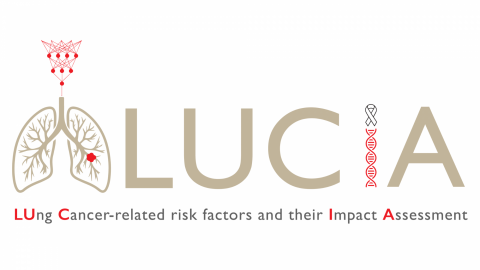
We are currently developing the LUCIA Electronic Case Report Form (eCRF), the tool that will be used in clinical research to collect data from patients participating in the medical study. Researchers and medical professionals use the eCRF to record data directly, improving the accuracy, efficiency, and speed of study data collection. The eCRF is being developed according to the specific requirements and needs established by clinical participants and researchers regarding lung cancer risk factors. This approach offers several advantages, including:
Reduction of human error: eCRF will significantly reduce errors in the data thanks to the Business logic we implement.
- According to a study published in the journal BMC Medical Informatics and Decision Making, the use of eCRF reduced error rates in data entry by between 60% and 80% compared to manual data entry.
Improved data accuracy: eCRF will include automatic validation to ensure that valid, consistent data is entered within defined ranges.
- A report published in the journal Clinical Trials found that the use of eCRF improved data quality by reducing discrepancy errors and outliers by between 30% and 50%.
Remote access to real-time data: eCRF allows researchers and clinical staff to access patient data from anywhere with connectivity. This facilitates remote monitoring of clinical trials and enables more flexible decision-making.
- An article in the Journal of Clinical Pharmacology states that real-time access to data improves the ability to detect and address safety issues in a timely manner.
Save time and resources: Automating data collection with eCRF can significantly reduce the time required to complete data entry and resolve discrepancies.
- A study published in Clinical Trials & Regulatory Science estimates that the use of eCRF can reduce operating costs by between 10% and 20%.
Simple auditing and regulatory compliance: eCRF automatically records who entered, modified, or accessed the data, making it easier to audit and ensure compliance in clinical trials.
- According to the Applied Clinical Trials article, the eCRF improves data traceability and simplifies the preparation of regulatory audits.
Customization capability: The eCRF is customized to meet the specific needs of LUCIA's medical study and includes customized and structured information for subsequent use.
- A report from the Drug Information Journal highlights that the flexibility of the eCRF allows for more accurate and relevant data collection for each study.
Coordination and communication improvements: eCRF allows multiple participating researchers, research centers and hospitals to collaborate more effectively by sharing data instantly and centrally.
- A study published in BMC Medical Research Methodology found that the use of eCRF improved communication between researchers and reduced delays in resolving data problems.
Minimize the risk of data loss: eCRF reduces the risk of data loss or corruption compared to paper forms by storing data electronically in a secure system.
- According to a report in the Journal of Medical Internet Research, eCRF improves data integrity and security by ensuring regular backups and access controls.
The eCRF integrates with other clinical research technologies, expert systems, and information exploitation systems in the field of Big Data, guaranteeing security when working with Keycloak, as it is an open-source solution for identity and access management.
Bilbomática also significantly contributes to the Professional UX user experience, to guarantee usability and agility throughout the entire process of LUCIA's medical study.
The LUCIA project receives funding from the European Union's Horizon Europe research and innovation programme under grant agreement 101096473 .
